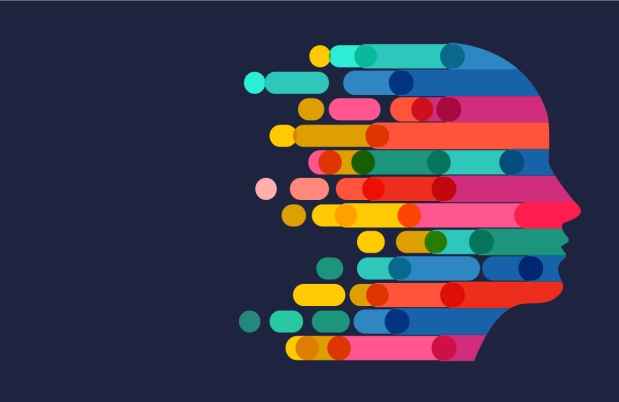Welcome Remarks: 2022 Suicide-Focused Assessment and Treatment Course
Available with English captions and subtitles in Spanish.
Scott J. O’Brien, McLean Hospital, Douglas G. Jacobs, MD, Stop a Suicide Today, and Alan F. Schatzberg, MD, Stanford University School of Medicine, introduce the 2022 course, Suicide-Focused Assessment and Treatment: An Update for Professionals.
Jump To
Remarks From Scott J. O’Brien
“Being comfortable discussing suicide and understanding those who may be at risk is crucial for everyone.”
“And while this course originally started out as an update for professionals, we have to admit that providers alone cannot solely be held responsible for helping to stop suicide. Health care providers need to be able to properly assess for suicidal ideation in their patients. But people such as educators and school administrators are regularly put in a position where they see a young person struggling and need to suggest that person seeks professional care.”
“People in management positions in businesses often need to feel comfortable asking someone who works with them if they need help. They may know that person may be at risk of harming themselves if they don’t intervene. We also know in many communities around the world, many people first seek guidance from faith leaders—for themselves or for someone they love.”
“While the United States has some of the most detailed statistics around suicide, the topic is hardly a local one. Suicide rates have been increasing around the world. Let’s take for example, a place I’m quite fond of: the country of India.”
“Even though reducing premature mortality is one of the United Nations’ sustainable development goals for that country, India has seen a rise in reported suicide rates for several years in a row. And it’s getting increasingly worse. Last year, there was a record increase of 7% year over year. We as a global community cannot accept this type of growth, and we have to do something now and do it together.”
“The topic of suicide prevention is a deeply personal one for me, as it is for many of you, and I really hope that everyone today will take away something that they learned and use it to positively impact people in your care and your communities.”
“The truth is that when people are often thinking of harming themselves, they may be in the care of a professional, but many more are struggling in silence. They feel alone. As if no one cares or is capable of helping them.”
“So, I’m asking each and every one of you today to keep a close eye on the people in your lives. I’m encouraging you not to be afraid to ask if they need help, if they need to talk, or if they are thinking about harming themselves.”
“This goes for our medical professionals as well. Our health care providers often need just as much support as the rest of us do. The truth is that suicide prevention is everybody’s business. Every single day, you have the potential to make a difference in someone’s life.”
Remarks From Dr. Douglas Jacobs
“In planning this workshop, Alan Schatzberg and I had the following purpose and goals in mind.”
“The purpose is to acknowledge that the clinical phenomenon of suicide impacts every clinician, regardless of setting they practice in, theoretical biologic approach, or level of experience.”
“It is this purpose that prompted the two organizations, McLean and Stanford to offer this workshop for free to make the program available to as many clinicians as possible to deal with this omnipresent problem. As you will hear, the goal is to provide current perspectives and the latest research on multiple timely topics, and this is the key point with application to clinical practice. Each speaker will describe how what they’re providing to you relates to your practice.”
“I’d like to share some clinical points that have been significant to me. I understand that these are only a few, but I just wanted to share because I’m sure each of you have your own views.”
“First is the issue of ambivalence, which is the concomitant contradictory feelings of the wish to die versus the wish to live. Acknowledge the side that wants to die, but ally or connect with the side that wants to live. And don’t be misled by future planning.”
“The second is that the feeling that one is a burden can be lethal. Reality testing and lifting that feeling can save a life.”
“And finally, and we think that unbearable pain is synonymous with suicide. Unbearable pain does not remain the same. So, stay the course with your patient.”
Remarks From Dr. Alan Schatzberg
“You’re going to hear a lot of different viewpoints about suicide.”
“You heard Scott and Doug tell you about how it really affects so many of us—not only patients and families, but treaters. The loss of a patient affects the treater. And what I’ve been very concerned about, particularly being a chair for almost two decades, was the effect on trainees, residents, and psych interns when they lose a patient.”
“They tend to be rare events, fortunately. But when they do happen, I generally reach out as the chair to the treater. I spend time with them and share with them my own unfortunate experiences, as all of us have had, in treating patients with severe depression or suicidality with or without depression.”
“I was delighted last year at the success of the program. We got a lot of tremendous feedback and great participation. I think this year we’re going to have a stellar program again.”
Resources
You may also find this information useful:
- 988 Suicide and Crisis Lifeline
- Suicide: Know the Signs and What To Do
- Suicide Prevention Resources
- Video: Suicide – Basic Facts
- Access to the full 2022 Suicide-Focused Assessment and Treatment Course
Learn more about the Current Status of Suicide-Focused Assessment and Treatment
About Scott J. O’Brien
O’Brien strives to make a difference in the world by advancing understanding about mental illness, while reducing the stigma that is too often associated with psychiatric disorders. In 2016, he launched McLean Hospital’s Education Outreach program, focused on delivering high-quality and accessible information about mental health to broad audiences.
Among the initiatives O’Brien has built is Deconstructing Stigma, an international mental health awareness and stigma reduction movement that has global audiences from the U.S. to India to Israel and beyond.
About Douglas G. Jacobs
Dr. Douglas Jacobs is a recognized expert in suicide assessment and intervention. In the early 1990s, he initiated the concept of large-scale screening for mental health disorders, with the founding of National Depression Screening Day.
Dr. Jacobs was chairman of the workgroup that published the American Psychiatric Association’s Practice Guidelines for the Assessment and Treatment of Patients With Suicidal Behaviors.
About Alan F. Schatzberg
Dr. Alan Schatzberg is the Kenneth T. Norris, Jr., Professor of the Department of Psychiatry and Behavioral Sciences at Stanford University. He directs the Stanford Mood Disorders Center and has been an active investigator in the biology and psychopharmacology of depressive disorders.
Dr. Schatzberg is the author of over 700 publications and abstracts and has been elected to the National Academy of Medicine.



